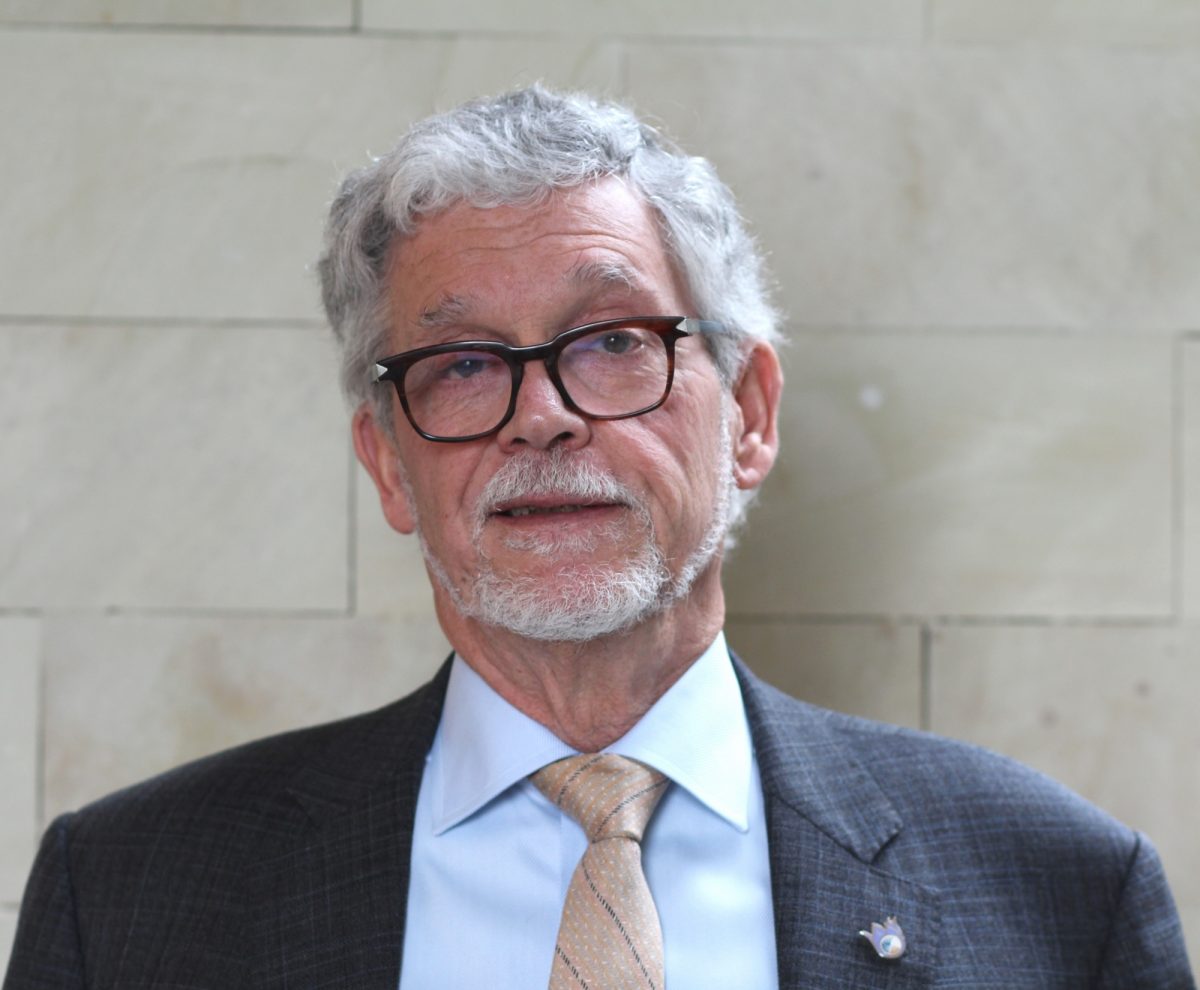
Dr. Brent Schacter
UM researcher honoured for life’s work
Developed international standards for bio banking biological materials for research
Dr. Brent Schacter will be inducted as a Fellow of the Canadian Academy of Health Sciences (CAHS).
Induction into the CAHS as a Fellow is considered one of the highest honours within Canada’s academic community. Fellows are chosen by their peers based on their demonstrated leadership, creativity, distinctive competencies and commitment to advancing academic health sciences.
“It is a great honour to be inducted as a Fellow to the CAHS,” says Dr. Schacter, a Professor Emeritus in the Department of Internal Medicine at the Max Rady College of Medicine of the University of Manitoba, and member of the Department of Medical Oncology and Hematology at CancerCare Manitoba.
“My research mission has all always focused on improving the outcomes of individuals coping with cancer and other diseases by advancing the way we do biomedical research and it’s inexpressibly gratifying to know my peers consider my work to be worthy of this terrific honour.”
Dr. Schacter [BSc/65, MD(Hons.)/65] has made monumental contributions to the fields of cancer and blood disorder research. Among his many achievements, while he was the Principal Investigator of the Canadian Tumour Repository Network (CTRNet), he launched a certification program that changed operating practices for biobanks—facilities that store biological materials for later research. He developed international quality assurance standards for the evolving field of biobanks that have been adopted around the world, much to the benefit of biomedical research. It was a herculean task to work with partners around the world, past language barriers, to ensure the rules were unambiguous.
The University of Manitoba now has 30 Fellows in the CAHS.
“Dr. Schacter is a superb clinician-scientist who deserves this prestigious honour for his life’s work and dedication to advancing biomedical research. His career is marked by so many groundbreaking ideas that challenged the global community to think and act differently. It is an admirable legacy, yet I’m sure he’s not even done as he continues to advance research ideas as professor emeritus,” says Dr. Digvir Jayas, vice-president (research and international) and Distinguished Professor at UM.
About the researcher
Dr. Brent Schacter has held many major national and international leadership roles: President/CEO of CancerCare Manitoba; CEO of Canadian Association of Provincial Cancer Agencies; and Co-Chair of Steering Committee, Canadian Strategy for Cancer Control. These roles allowed effective advocacy for establishment of Canadian Partnership Against Cancer.
Dr. Schacter was also the P.I. of the Canadian Tumour Repository Network, which launched a Biobank Education and Certification Program that has been adopted globally. He was Co-Chair of the Canadian Task Force on Adolescents and Young Adults (AYA) With Cancer from 2008-2016. The AYA Task Force created recommendations for care of AYA cancer patients in Canada in an initiative directed by Dr. Schacter and contributed to the development of a Diploma Program for qualification in AYA Oncology for the Royal College of Physicians and Surgeons of Canada. He was a member of the Board of the International Society for Biological and Environmental Repositories (ISBER) for eight years and served as its President for 2016/17. More recently, he has chaired a steering committee for ISBER and the American Society of Clinical Pathology that has created and initiated the first worldwide online qualification examination for biobanking professionals (QBRS- Qualification in Biorepository Science).
Dr. Schacter has received several noteworthy awards and honours, including: the Queen Elizabeth II Golden Jubilee Commemorative Medal (2002); Certificate of Appreciation, Alliance for the Prevention of Chronic Disease (2005); Certificate of Recognition, Minister of Health, Canada (2006); Award for Excellence in Medicine and Health, Canadian Cancer Society (2010); and the Distinguished Service Award from Doctors Manitoba (2013), to list a few.
Research at the University of Manitoba is partially supported by funding from the Government of Canada Research Support Fund.






